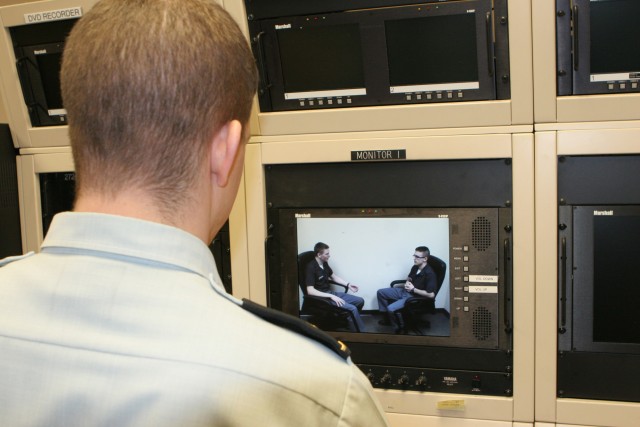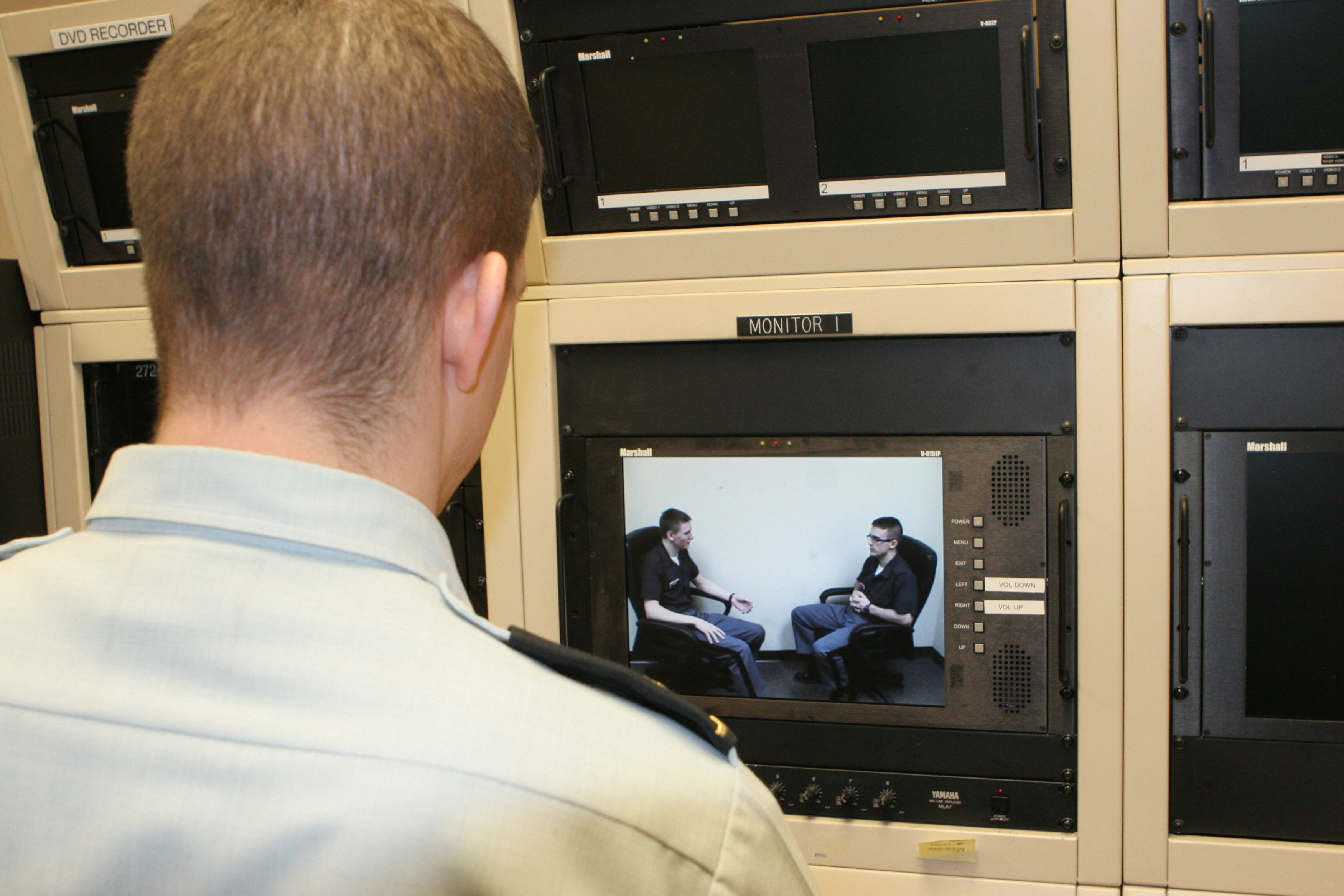WEST POINT, N.Y. (March 30, 2010) -- The torment that witnesses of war feel through post traumatic stress disorder is painful enough to get through day-by-day. But for the combat veterans who experience those horrors alone, it's certain to be a losing battle.
That is why Maj. Joseph Geraci, an instructor in the Department of Behavioral Sciences and Leadership at West Point, N.Y., is conducting a study with cadets and 10th Mountain Division
Soldiers to find an effective method of treating PTSD patients through one-on-one counseling.
"How do you sit down and talk to somebody when they're going through a hard time'" Geraci asks the fundamental question in the study. "How can you help'"
While Geraci was in graduate school at Columbia University two years ago, his best friend and fellow company commander died. During a six-month period of grieving, he shifted his academic path away from the study of leadership and decided to learn about psychotherapy.
"Through this process, I very clearly reflected back on the pain related to deploying to combat," Geraci said. "I kind of found a new calling in life."
Since then, Geraci has spent time compiling combat loss statistics connected to the numbers of Soldiers suffering from posttraumatic stress. According to his research, more than 80 percent of Soldiers have almost died in combat. Also, about 80 percent of Soldiers have lost a good friend in combat.
According to Army Counterinsurgency FM 3-24, Sec. 7-12, it is the leader's responsibility to, "remain aware of the emotional toll that constant combat takes on their subordinates and the potential resulting psychoneurotic injury." When leaders see this high level of stress, they are expected to, "provide emotional 'shock absorbers' for their subordinates."
"So by default, our doctrine is telling us what the leader is responsible to help all these Soldiers," Geraci said. "But we give our leaders zero training to perform this function as an emotional shock absorber."
That missing training is what Geraci hopes his study can build-a way to help leaders increase their leadership skills, build resilience and find social support. He believes that the keys to doing so are establishing a connection between social networks and PTSD, and helping leaders build positive intrapersonal relationships with subordinates through counseling.
"For me, to be able to sit down and ask, 'hey, how's your day,' or, 'what's going on, tell me what's happening,'" Geraci said, "(that's how) the Soldier feels that their leaders care about them."
Geraci, a Class of 1998 West Point graduate, conducts some of the research for his study during his PL387 Foundations of Counseling class-a favorite of his as a cadet and one he enjoys teaching today.
Using a lab with a closed-circuit TV, he observes his cadets as they practice counseling their subordinates. Instead of evaluating job performance or giving criticism, they take time to learn how their cadet is feeling, if they're experiencing a problem and offering their support.
"The pass/fail (standard) for the class is, 'I want to see you interacting and talking to your Soldier, utilizing good leadership skills and showing concern,'" Geraci said. "It all goes back to that term, (being an) emotional shock absorber."
This process was also conducted with Soldiers of the 1st Brigade Combat Team, 10th Mtn. Div., prior to their deployment to Afghanistan in February. Geraci brought one of his PL387 students, Firstie David Ameneyro of Company D-2, with him to help collect data for the study.
After taking the semester-long course and participating in a summarized, five-day version taught to the Fort Drum Soldiers, Ameneyro found that he listens more now to what others have to say and knows how to better respond to their feedback.
"From my perspective, I feel like I've been able to connect with my friends ... on a
deeper level than what I was able to before," the Mariposa, Calif., native said. "I'm more emotionally mature and receptive to be able to connect with somebody." Geraci's prediction is that when he visits the Soldiers in Afghanistan this March to follow up, many of them will show symptoms of PTSD, but those without personal connections will experience more severe forms of it.
Until then, there is no way of telling if social interaction has any effect on the severity of PTSD. But if Geraci's hypothesis is correct, then the next step will be to reproduce the training at West Point for use in the greater Army's ranks.
"Our Soldiers are too important to us," Geraci said. "We want to give them the best leadership possible."


Social Sharing